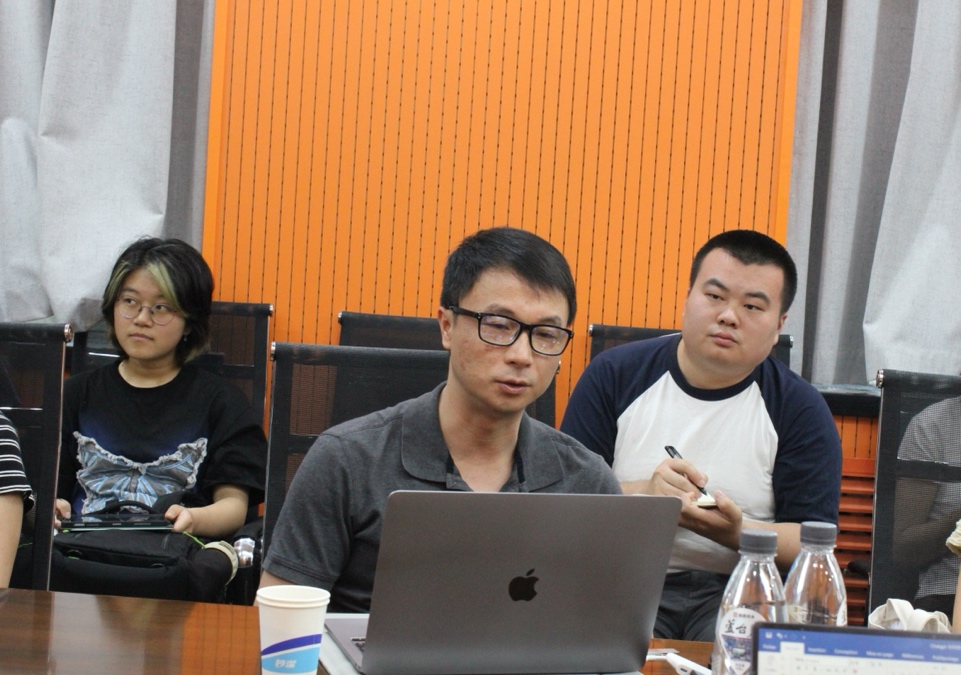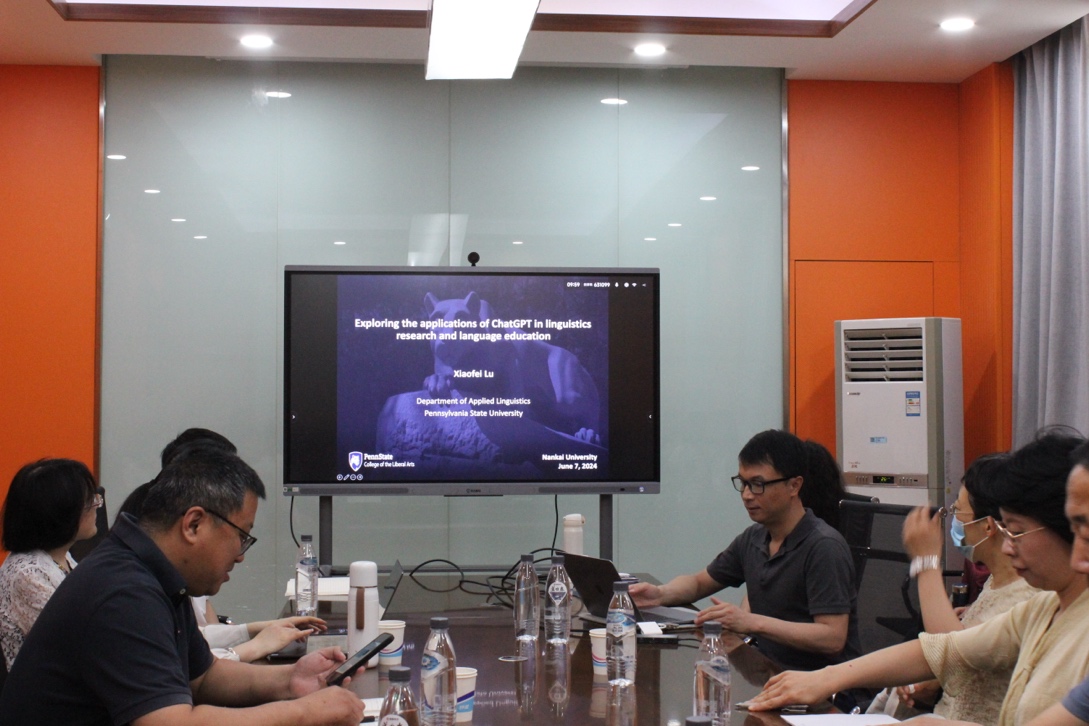
In the wave of rapid development of intelligent computational tools represented by artificial intelligence, scholars are thinking more and more deeply about how to scientifically use these tools to solve linguistic problems, and all levels of linguistic research are experiencing a tool revolution. In this context, how to correctly view and master the computational methods and tools in linguistic research has become a key topic in linguistic research. In the afternoon of June 6 and the morning of June 7, 2024, Prof. Lu Xiaofei, professor and doctoral supervisor of the Department of Applied Linguistics of the Pennsylvania State University, held two lectures titled “Linguistic Complexity Research: Recent Advances and Future Directions” and “Exploring the Applications of ChatGPT in Linguistics Research and Language Education”.
The lectures were hosted by Prof. Yan Guodong, Dean of the School of Foreign Studies, and Prof. Li Min, Vice Dean of the School of Foreign Studies respectively. More than 60 people from the Departments of English, Translation, Russian, French, and Italian, and the Department of Foreign Languages for Non-Majors, as well as from Tianjin University of Technology, Tianjin Normal University and other universities in Tianjin attended the two lectures. At the beginning of the lectures, Dean Prof. Yan Guodong first expressed his thanks to Prof. Lu Xiaofei for his coming and introduced the basic situation of Prof. Lu Xiaofei. Prof. Lu thanked the kind invitation from the alma mater and recalled the days of his study here.

The first lecture was held on the afternoon of June 6 and was divided into five parts. Prof. Lu Xiaofei started with the introduction of the concept of language complexity, showed two major current status of language complexity research, further explored five promising research directions and gaps, and finally summarized and looked forward to the development direction of language complexity research. The lecture was rich in content, details and cutting-edge topics, which stimulated questions and discussions among the attending teachers and students. Prof. Lu meticulously answered the questions, and the first lecture ended successfully in a warm exchange.
The second lecture was held on the morning of June 7, about the application of AI in linguistic research and language education. It focused on the basic principles of ChatGPT and its usage in linguistic research, language teaching and assessment, and looked forward to the future direction of development. Prof. Lu Xiaofei emphasized that it is crucial to understand how ChatGPT works, its functions, its limitations and its ethical issues, including knowledge gaps, content accuracy and depth of understanding, plagiarism, and transparency, among others. Theoretically supported and targeted applications are key, and collaborative use and iterative approaches can be used to optimize the functionality, efficiency and reliability of ChatGPT. Finally, Prof. Lu summarized and outlooked the powerful features of ChatGPT, emphasizing its application in all stages of literature survey, research design and data analysis, as well as its role in language teaching and learning.
The two lectures were both academic and practical, and easy to understand, triggering heated discussions. Facing the ethical thinking and technical problems about the use of tools, Prof. Lu Xiaofei emphasized the importance of focusing on the big problems that have always existed in linguistic research, aiming at solving the small problems under the big problems, using the tools reasonably and effectively, and providing suggestions for the selection of topics for the papers, research design, and statistical methods of data. It is believed that Professor Lu Xiaofei's lecture will further promote the quality and level of international high-level journal publications of our teachers and students, and play an important role in promoting the internationalization of the research results of the college.



